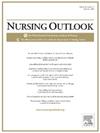Entrenched toxic culture in academic nursing: A concept analysis
IF 3.7
2区 医学
Q1 NURSING
引用次数: 0
Abstract
Background
Entrenched toxic cultures (ETCs) are pervasive in academic nursing, yet they are underexplored and have not been previously defined. The concept differs from unhealthy workplaces in that a profoundly destructive and deeply malignant problem exists that is highly recalcitrant to change and consumes the organization from within.
Purpose
Defining this concept is crucial for creating a safe workplace and addressing the toxic behaviors that undermine the well-being of faculty.
Methods
We aim to define this concept using Walker and Avant’s eight-step method of concept analysis.
Discussion
ETCs have five defining attributes characterizing maltreatment as (a) high intensity, (b) chronically repeated, (c) attributed to power imbalances, (d) normalized, and (e) resistant to change. The antecedents and consequences are multifactorial occurring at various levels of the academic hierarchy.
Conclusion
By analyzing ETCs, we can better understand the impact on academic nursing and propose tools and strategies to address it.
学术护理中根深蒂固的有毒文化:概念分析
根深蒂固的有毒文化(ETCs)在学术护理中普遍存在,但它们尚未得到充分探索,也没有被定义。这个概念不同于不健康的工作场所,因为存在着一个极具破坏性和恶性的问题,它很难改变,并从内部消耗组织。定义这一概念对于创造一个安全的工作场所和解决破坏教师福祉的有毒行为至关重要。方法采用Walker和Avant的概念分析八步法对这一概念进行界定。etcs有五个定义属性,表征虐待:(a)高强度,(b)长期重复,(c)归因于权力不平衡,(d)正常化,(e)抵抗改变。其前因后果是多因素的,发生在学术等级的不同层次。结论通过分析ETCs,我们可以更好地了解对学术护理的影响,并提出解决这些影响的工具和策略。
本文章由计算机程序翻译,如有差异,请以英文原文为准。
求助全文
约1分钟内获得全文
求助全文
来源期刊

Nursing Outlook
医学-护理
CiteScore
6.20
自引率
7.00%
发文量
109
审稿时长
25 days
期刊介绍:
Nursing Outlook, a bimonthly journal, provides innovative ideas for nursing leaders through peer-reviewed articles and timely reports. Each issue examines current issues and trends in nursing practice, education, and research, offering progressive solutions to the challenges facing the profession. Nursing Outlook is the official journal of the American Academy of Nursing and the Council for the Advancement of Nursing Science and supports their mission to serve the public and the nursing profession by advancing health policy and practice through the generation, synthesis, and dissemination of nursing knowledge. The journal is included in MEDLINE, CINAHL and the Journal Citation Reports published by Clarivate Analytics.
 求助内容:
求助内容: 应助结果提醒方式:
应助结果提醒方式:


